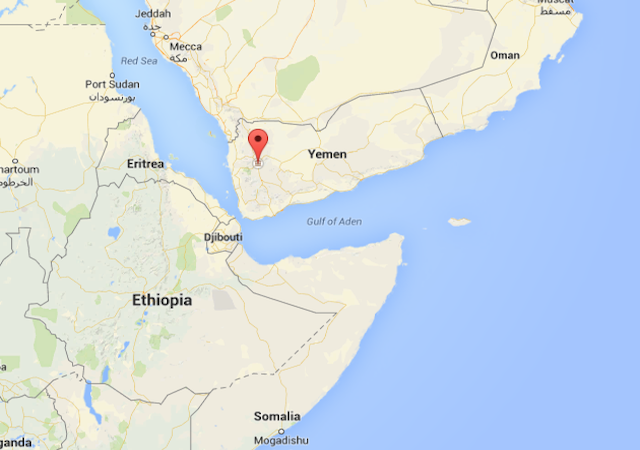
Over the past several months, we’ve watched the situation in Yemen devolve to the point of chaos. In September, Iranian-backed Houthi rebels took informal control of the capital city of Sanaa; then, in mid-January, Yemen’s active al-Qaeda cell took credit for the terror attacks on Charlie Hebdo in Paris, and threatened similar acts of violence.
Around the same time, American officials in Yemen began to question the security of State Department and other officials stationed at the embassy in Sanaa, and on January 20, were poised to evacuate. Houthi rebels had amped up the violence in the city, and laid siege to the presidential palace and personal residence of Yemeni President Abed Rabbo Mansour Hadi. A compromise was reached between the rebels and the now-hostage government, but negotiations quickly broke down; President Hadi and his government resigned, and the Houdi maintained comfortable control of key areas of the capital.
Now, the Houthi have dissolved parliament, and for all intents and purposes taken formal control of the country.
Via NPR:
A televised statement read by an unidentified Houthi member called the takeover “a new era that will take Yemen to safe shores.” He said the group was forming a 151-member presidential council that would act as a government for two years. Revolutionary Committees would be in charge of forming a new parliament, the statement said.
The Associated Press adds:
“The development also plunges the impoverished country deeper into turmoil and threatens to turn the crisis into a full-blown sectarian conflict, pitting the Iran-backed Houthi Shiites against Sunni tribesmen and secessionists in the south.”
According to a report by the New York Times, the Houthi moved quickly to appoint a skeleton government as a way of allaying the fears of both Western powers and the Saudis, but no one has confirmed if those appointed to the new national security committee accepted those positions voluntarily.
Six Arab nations have denounced what is widely regarded as a coup against a legitimate government, and the United Nations continues to put pressure on the Houthi to refrain from making unilateral appointments to the new government.
Yemen may be a very small, very poor country, but everyone should tune in when news about what’s happening crosses the wire. These types of coups generally lead to instability; and in spite of the Arab coalition speaking out against what’s happened, the region has reached a tipping point. Yemen is a powder keg currently playing host to two dangerous factions, both of whom now have an opportunity to exact a disconcerting level of control over a strategically crucial slice of land.
Donations tax deductible
to the full extent allowed by law.








Comments
“This strategy of taking out terrorists who threaten us [without deploying U.S. troops], while supporting partners on the front lines, is one that we have successfully pursued in Yemen and Somalia for years.”
Obama September 2014
Obama’s promised exit dates and fast retreats have meant success for the rebuilding of radical Islam in the whole region. Our gains have been surrendered or squandered. The pathway for Iranian nuclear development is clear for at least the next two years. If Obama really believes that is success, he is not on our side.
Not to worry. Because the government of Yemen has been deposed by an Iranian proxy, obama will have no problem supporting the take over of another nation by an enemy of the United States.
Another great success by our Dear Leader. Will his greatness never end. He shines like the sun!
It is a success for obama, but not the USA. If you view obama through the correct lens, aligned with our enemies, then you will begin to understand.